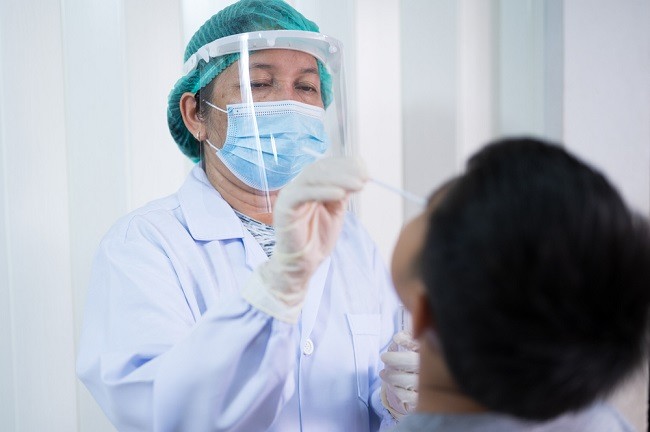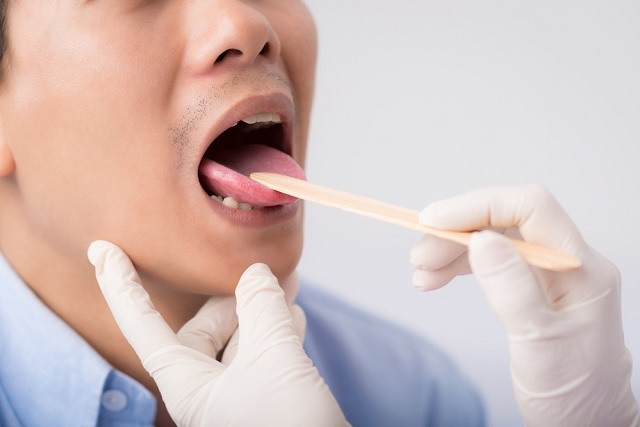Capecitabine is a drug to treat colorectal, stomach cancer, or breast cancer. This drug can be used alone or in combination with other anticancer drugs.
Capecitabine is an anticancer drug that works by inhibiting the formation of DNA or the genetic material of cancer cells. That way, the growth of cancer cells will be inhibited.

Trademarkcapecitabine: Binecap, Taceral, Xeloda
What is Capecitabine
| group | Prescription drugs |
| Category | Anti cancer |
| Benefit | Treat colorectal cancer, stomach cancer, or breast cancer |
| Consumed by | Mature |
| Capecitabine for pregnant and lactating women | Category D:There is positive evidence of risks to the human fetus, but the benefits may outweigh the risks, for example in dealing with life-threatening situations. It is not known whether Capecitabine is absorbed into breast milk or not. If you are breastfeeding, do not use this medicine without consulting your doctor first. |
| Drug form | Tablet |
Warning Before Consuming Capecitabine
There are several things you should pay attention to before using capecitabine, namely:
- Tell your doctor about any allergies you have. Capecitabine should not be given to patients who are allergic to this drug or to fluororacil.
- Tell your doctor if you have an infectious disease, dihydropyrimidine dehydrogenase (DPD) deficiency, kidney disease, liver disease, heart disease, or a blood disorder.
- Tell your doctor if you are pregnant, breastfeeding, or planning a pregnancy. Use effective contraception while on treatment with this medicine.
- Tell your doctor if you are taking certain medications, supplements, or herbal products.
- Talk to your doctor if you plan to vaccinate while on treatment with capecitabine.
- As much as possible avoid close contact with people with infectious diseases that are easily transmitted, such as the flu while undergoing treatment with capecitabine, because it can increase your risk of contracting it.
- See your doctor right away if you have an allergic drug reaction, overdose, or serious side effect after taking capecitabine.
Dose and Rules of Use Capecitabine
The following is the dose of capecitabine for adults based on the type of cancer to be treated and body surface area (LPT):
Condition: Colorectal cancer
- As monotherapy, the initial dose is 1,250 mg/m2 LPT, twice daily for 14 days, followed by a 7 day rest period.
- As combination therapy, the initial dose is 800–1,000 mg/m2 LPT, twice daily for 14 days, followed by a 7-day rest period.
Condition: Breast cancer
- The initial dose is 1,250 mg/m2 LPT, 2 times daily for 14 days, followed by a 7 day rest period.
- The next dose can be adjusted according to the patient's condition and response to treatment.
Condition: stomach cancer
- As combination therapy, the initial dose is 800–1,000 mg/m2 LPT, twice daily for 14 days, followed by a 7-day rest period.
- The next dose can be adjusted according to the patient's condition and response to treatment.
Method Taking Capecitabine Right
Always follow the doctor's advice and read the information on the medicine package before taking capecitabine.
Take capecitabine 30 minutes after eating. Take capecitabine at the same time every day. Swallow capecitabine tablets whole with the help of a glass of water. Do not crush, split, or chew the medicine as this may affect its effectiveness.
Take capecitabine regularly. Do not start or stop taking the drug or increase or decrease the dose of the drug without consulting your doctor first.
If you forget to take capecitabine tablets, take them as soon as you remember if the distance to the next consumption schedule is not too close. If it is close, ignore it and do not double the dose. Tell your doctor if you frequently forget to take this medication.
While taking capecitabine, you need to do regular check-ups to find out your body's condition and response to treatment. In addition, you will also be asked to do blood tests and regular checkups.
Capecitabine can weaken your immune system. Therefore, consult your doctor first if you plan to immunize while taking capecitabine or within 6 months after stopping taking capecitabine,
Store capecitabine in a dry place, away from direct sunlight, and at room temperature. Keep this medicine out of reach of children.
InteractionCapecitabine with other drugs
Some of the interaction effects that can occur if capecitabine is used together with other drugs are:
- Increased risk of developing dangerous infectious diseases when used with adalimumab, fingolimod, or etanercept
- Increased risk of blood clots forming which can be dangerous when used with thalidomide
- Increased risk of infection or decreased effectiveness of live vaccines, such as BCG vaccine or influenza vaccine
- Increased risk of bleeding if used with warfarin or dicumarol
- Increased effects of capecitabine which can lead to side effects such as anemia or neurological disease when used with folic acid or iron supplements
Capecitabine Side Effects and Dangers
There are several side effects that can appear after taking capecitabine, including:
- Nausea or vomiting
- Constipation or diarrhea
- Loss of appetite
- Unusual tired
- Hard to sleep
- Dizziness or headache
- Disorders of the sense of taste
- Hair loss that occurs during treatment
- Nail color change
Check with your doctor if these side effects don't improve or get worse. See your doctor right away if you have an allergic drug reaction or any of the following serious side effects:
- Nausea or vomiting that doesn't stop
- Can't eat or drink
- Canker sores that are heavy in the mouth
- Easy bruising or black stools
- Infrequent urination or very little urine
- Chest pain, difficulty breathing, fast or irregular heart rate
- Faint
- Jaundice
- An infectious disease that can be characterized by symptoms such as fever or cough that does not go away









